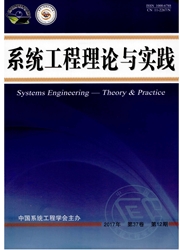

 中文摘要:
中文摘要:
本文采用边限检验方法和1979—2013年时间序列数据考察了法定和事实开放程度对我国经济增长的影响,以及国内经济发展水平和国际经济金融变量对金融开放效果的影响.研究发现,跨境金融交易法律法规的放松及跨境金融交易规模的扩大均会促进我国的经济增长,但其增长效果随着时间的推移、物质资本存量的增加、金融发展及人力资本水平的提升而降低.此外,金融开放具有降低世界产出、利率及原油价格对经济冲击的作用.最后,物质资本对经济增长的促进作用显著,人力资本正成为经济增长的重要推动力量,但金融发展和人口增长对经济增长不存在促进作用.
 英文摘要:
英文摘要:
We investigate the effects of de jure and de facto measures of financial openness on the economic growth, the role of domestic economic development and international economic and financial variables on the effect of financial openness by ntilizing bounds testing approach and employing time series data from 1979 to 2013. We find that both financial deregulations on cross-border transactions and expansion of cross-border financial transactions have the positive effects on the economic growth, but the effects diminish with time, increase of physical capital, financial development and improvements of human capital. Further, financial openness can lower the impact of world production, interest rate and the price of crude oil on economic growth. Finally, we also find that physical capital have the significant impacts on the economic growth while human capital is an emerging impetus to the economic development, but financial development and population growth do not have the promotion effects on the economic growth.
 同期刊论文项目
同期刊论文项目
 同项目期刊论文
同项目期刊论文
 期刊信息
期刊信息
